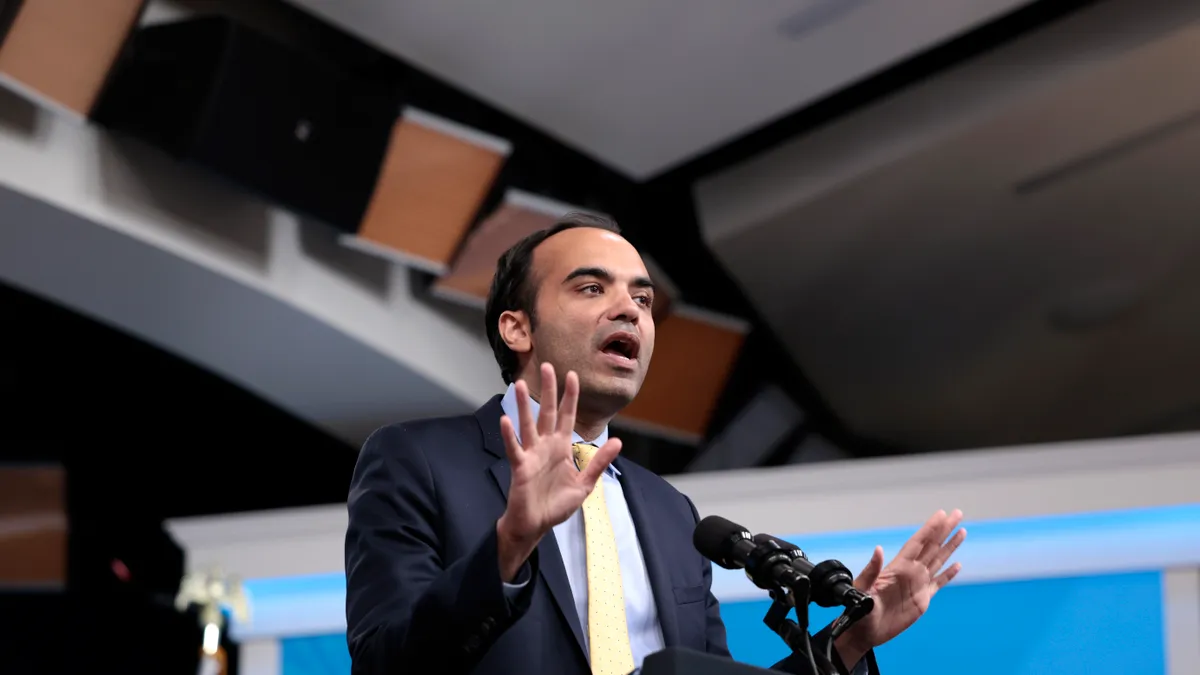The Consumer Financial Protection Bureau took major retailers to task in a report Tuesday, questioning their levying of $90 million in fees annually on consumers who get cash back with debit card and prepaid card purchases.
The CFPB called out the Dollar General, Dollar Tree/Family Dollar and Kroger retail chains for charging the fees, citing Dollar General as charging the highest fees at up to $2.50, depending on the transaction amount, according to the report. One of the retailers, Dollar General, responded after all three were asked for a comment.
“While not a financial institution, Dollar General provides cashback options at our more than 20,000 stores across the country as a service to customers who may not have convenient access to their primary financial institution,” the company said in a statement Tuesday. “These services may also help customers save money on fees compared to alternative, non-retail options such as check cashing locations or ATM fees.”
The agency, which conducted a survey of retailers to gather data nationwide, also noted Walmart, Target and Walgreens don’t charge any such fees.
In its report, the federal agency said the retailer fees are being imposed at a time when banking industry changes have reduced consumers’ access to no-fee cash distribution points because there are fewer bank branches and more ATMs that charge fees.
“The CFPB is concerned that reduced access to cash undermines the resilience of the financial system and deprives consumers of a free, reliable and private means of engaging in day-to-day transactions,” the report said in its conclusion.
From the agency’s perspective, allowing consumers to ask for cash back when they use their debit or prepaid card to make a purchase is a win-win for the consumer and the merchant. While the consumers get access to cash, the merchants use the service to attract customers and reduce their cash-handling expense, the agency said in the release.
Nonetheless, areas with less access to cash are on the rise. “Many people living in small towns no longer have access to a local bank where they can withdraw money from their account for free,” CFPB Director Rohit Chopra said in a press release that accompanied the report Tuesday. “This has created the competitive conditions for retailers to charge fees for cash back.”
The CFPB is particularly concerned about the disproportionate impact the fees could have on some communities. “Dollar stores are frequently located in small rural towns, communities of color and low-income communities,” the release said. “These areas are also more likely to have fewer bank branch locations and more residents reliant on cash for daily transactions than others.”
The CFPB suggested that it, or other agencies, might take action to preserve more access to no-fee cash, saying it will continue to monitor the situation “and work with agencies across the federal government to ensure people have fair and meaningful access to the money that underpins our economy.”
The federal agency estimated a “marginal cost” to merchants of perhaps a “few pennies” for processing the cash back transactions, compared to the retailers’ “much higher fees” charged to consumers.
A spokesperson for the National Retail Federation, Dylan Jeon, disagreed with that characterization, saying merchants sometimes bear significant costs when customers get cash back. He explained that debit cards issued by smaller financial institutions don't have to abide by a federal cap on fees, so merchants must pay fees on those amounts included as part of the total transaction.
”It certainly can be more than just pennies to process these transactions,” he said in an interview. He also noted that a more important issue for the agency should be the cost of credit card swipe fees that the banks impose on merchants when consumers use those cards for purchases.











